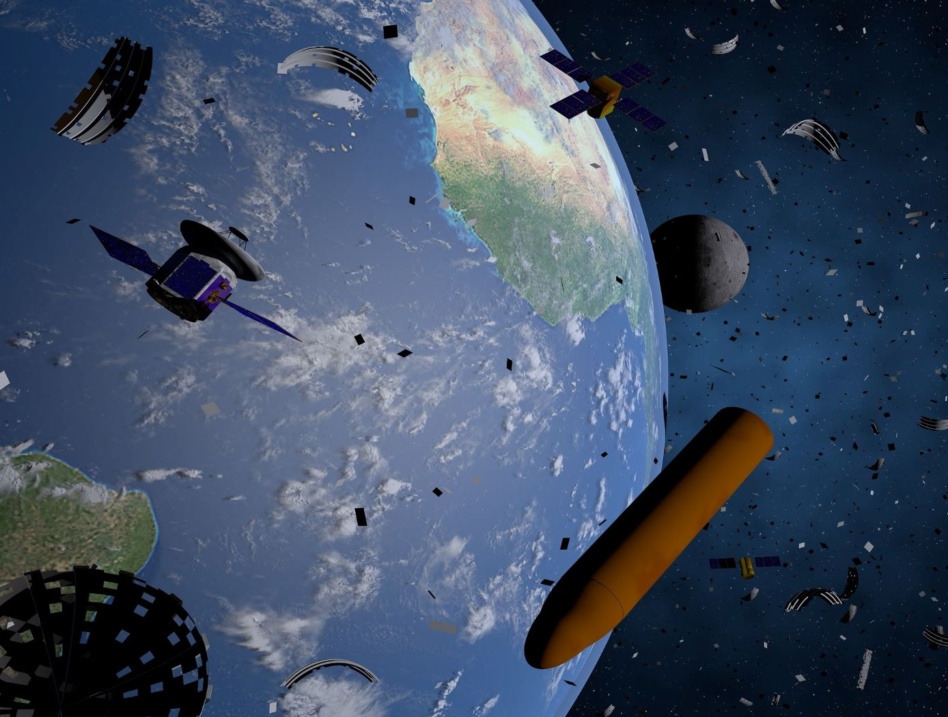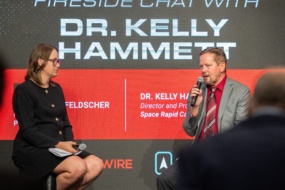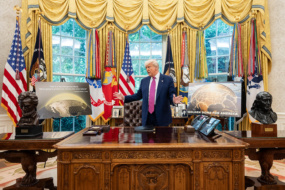The FCC has enforced consequences for the first time on a company that failed to stick to its deorbit plan, the agency announced yesterday.
“As satellite operations become more prevalent and the space economy accelerates, we must be certain that operators comply with their commitments,” Loyaan A. Egal, FCC’s Enforcement Bureau Chief, said in a statement. “This is a breakthrough settlement, making very clear the FCC has strong enforcement authority and capability to enforce its vitally important space debris rules.”
What’s the big deal? The move could have big implications for the future of space junk. There’s now precedent that satellite operators will have to pay the price if they fail to follow the plan they set forth to pick up after themselves in orbit.
“I think it is a big deal,” Brian Weeden, director of program planning at the Security World Foundation, told Payload. “Since the Reagan administration, every national space policy has mentioned orbital debris and mitigation and has added something new….This kind of fits in that pattern.”
The case: The FCC found that Dish Network did not properly deorbit its EchoStar-7 satellite, violating the Communications Act, the FCC’s rules, and the company’s own license, which included a deorbit plan that the company did not follow.
Dish planned to move the satellite into a graveyard orbit 300 km above its operating orbit at the end of its life in May 2022. But in February 2022, the company realized the satellite did not have enough fuel left to reach that graveyard orbit. Instead, Dish raised the satellite just 122 km above its operational orbit, where it “could pose orbital debris concerns,” according to the FCC release.
The punishment: Dish will pay a $150,000 civil penalty, admit fault, and implement a compliance plan, according to the consent decree.
Admitting fault could open the company to financial liability if the defunct satellite damages another spacecraft in orbit, Weeden said.
“I think what this means is if in the future this satellite was to be involved in an incident where it created damages, the US government might be able to pass along damages to the company,” he said.
Orbital debris in the spotlight: Removing trash from orbit, and limiting what gets left up there to begin with, has been a hot topic lately. From industry-led standards, including those released in June by the World Economic Forum, to bipartisan efforts on Capitol Hill to boost investment in active debris removal tech, everyone is weighing in on the best way to keep space clean.
The industry is already doing a pretty good job cleaning up after itself. ESA’s Space Environment Report released last month found that between 85% and 100% of payloads in GEO try to comply with debris mitigation requirements, while 60% to 90% actually do so successfully.
Zoom out: Weeden noted that this is just the latest chapter in the ongoing debate over which federal agencies should have the authority to regulate spaceflight, and how much power they should hold.
“I’m sure there are some people that are going to be grumbling about this because they don’t believe the FCC has or should have this power,” he said. “The problem keeps coming up again and again of whose responsibility is this?”




